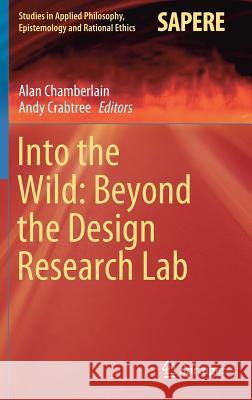Into the Wild: Beyond the Design Research Lab » książka
topmenu
Into the Wild: Beyond the Design Research Lab
ISBN-13: 9783030180188 / Angielski / Twarda / 2019 / 235 str.
Kategorie:
Kategorie BISAC:
Wydawca:
Springer
Seria wydawnicza:
Język:
Angielski
ISBN-13:
9783030180188
Rok wydania:
2019
Wydanie:
2020
Ilość stron:
235
Waga:
0.51 kg
Wymiary:
23.39 x 15.6 x 1.42
Oprawa:
Twarda
Wolumenów:
01
Dodatkowe informacje:
Wydanie ilustrowane











